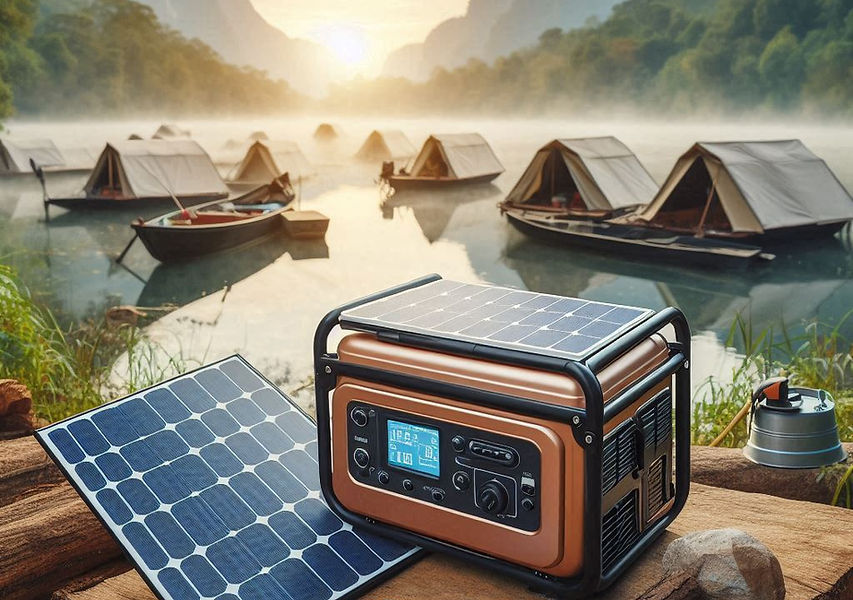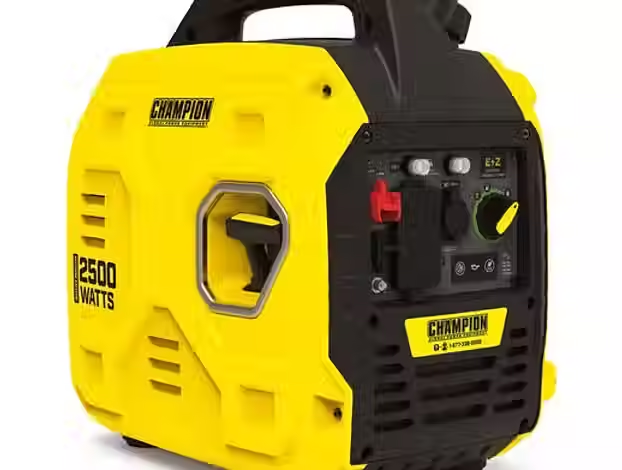Best Affordable Generators 2026 — Long-form Review & Buyer’s Guide

A narrative-led guide to the best budget-friendly generators for camping, RVs, job sites and emergency home backup. Detailed model-by-model reviews, pros & cons, a comparison table, retailer ratings, FAQs and our top pick for value.
When the lights first blinked out on a winter evening, I used a small inverter to keep the fridge alive and my laptop charged. That night taught me the value of a generator that is reliable, not over-priced, and easy to handle. In this guide I’ll walk you through the best affordable generators in 2026 — why they matter, how they differ, and which one most readers should buy.
How to read this guide (quick)
Read the model sections for a story-style explanation of each unit, then scan the comparison table and ratings for a quick decision. Images are recommended after each model’s intro so readers can visualize scale and design.
What “affordable” means here
We define “affordable” as models that deliver strong value for under roughly $1,200 (for portable gas/dual-fuel/inverter units). Heavy-duty open-frame units with higher wattage are included when they offer a very low price-per-watt.
Westinghouse iGen2200 — Balanced, quiet and budget-friendly
I remember packing the iGen2200 for a weekend trip: it’s light enough to lift into a small SUV and quiet enough to keep a campsite calm. The Westinghouse iGen2200 repeatedly earns praise for its blend of price, runtime and low noise — the kind of model you grab when you want decent performance without sticker shock.
Key specs
-
Rated output: 1,800 W running / 2,200 W peak
-
Weight: ~46 lbs
-
Noise: ~52 dB at 25% load
-
Runtime: up to ~12+ hours at 25% load
Why people like it
-
Excellent price-to-performance ratio.
-
Quiet enough for camping and light home use.
-
Parallel capability for more power if needed.
Drawbacks
-
Build is not as premium as Honda — some plastic parts.
-
Not intended for sustained heavy loads.
Best use
Weekend camping, RV overnight stays, tailgating and small home essentials (fridge + lights) during short outages.
Champion 2500 — Lightweight & flexible (dual-fuel)
Champion’s 2500 is the kind of generator you notice because you can actually pick it up and carry. It’s built for portability — and the dual-fuel option is a practical advantage if you want to switch to propane for longer storage life.
Key specs
-
Rated output: ~1,850 W running / 2,500 W peak
-
Weight: ~39 lbs
-
Noise: ~53 dB
-
Fuel: Gasoline or propane (dual-fuel)
Why people like it
-
Extremely portable — excellent for single-person handling.
-
Dual-fuel gives storage flexibility.
-
Competitive price for an inverter model.
Drawbacks
-
Smaller tank = shorter runtime on gasoline.
-
Less headroom for power-hungry appliances.
Best use
Solo campers, tailgaters, and anyone who needs an ultra-portable power source for short windows.
DuroMax XP4400E — Big power for small money
If you want raw wattage without a huge price, DuroMax delivers. The XP4400E is heavier and louder than inverter options, but it brings the ability to run more demanding appliances for less money.
Key specs
-
Rated output: 3,500 W running / 4,400 W surge
-
Weight: ~120 lbs
-
Noise: ~69 dB
-
Start: Electric / recoil
Why people like it
-
High wattage for the price — suitable for several household loads.
-
Electric start makes it friendly for less technical users.
Drawbacks
-
Heavy and less portable — needs wheels/assistance.
-
Noisy — not ideal for quiet campsites or close neighborhoods.
Best use
Short-term home backup for essential circuits, job sites and power tools where noise and weight are less important than output.

Jackery Explorer 500 — Silent solar-friendly option
If you want silent, emission-free power for electronics, a battery-based solar power station like the Jackery Explorer 500 is very attractive. It behaves differently than gas generators — no fuel, no fumes, and near-silent operation.
Key specs
-
Battery capacity: 518 Wh
-
AC output: 500 W continuous
-
Weight: ~13 lbs
-
Charging: AC, car, solar input (optional panels)
Why people like it
-
Zero emissions and silent operation.
-
Very easy to use — plug and play.
Drawbacks
-
Limited output for heavy appliances (no full-sized fridge for long runs).
-
Higher cost per watt compared to gas generators.
Best use
Phone/laptop charging, CPAP devices for a few hours, lighting, and sensitive electronics on short trips — great for eco-focused campers.
— — —
A few personal tips before you choose
Think in practical terms: make a simple list of appliances you must run during an outage (fridge, pump, lights, Wi-Fi), check their starting and running watts, and choose a generator with a comfortable margin above that total. If you need quiet, prioritize inverter models. If you need raw wattage for tools or long runtimes, open-frame/big-watt models win.

🔸 Honda EU1000i – Compact & Reliable Power
The Honda EU1000i is a compact inverter generator designed for users who need ultra-portable power. With a rated output of 900 watts and a maximum of 1000 watts, it’s ideal for light-duty applications. At just under 30 lbs, it’s one of the lightest options on the market. Its inverter technology ensures safe power for sensitive electronics like laptops and cameras.
Pros:
-
Extremely lightweight and easy to carry
-
Quiet operation (50–59 dB)
-
Legendary Honda reliability
Cons:
-
Limited output, not suitable for heavy appliances
-
Smaller runtime compared to larger models
Best For: Camping, tailgating, or powering small devices during short power interruptions

🔸 Honda EU2200i – Balanced Power & Portability
Stepping up from the EU1000i, the Honda EU2200i delivers 1800 running watts and 2200 surge watts. Despite the higher power, it remains highly portable and fuel-efficient. A standout feature is its ability to connect in parallel with another EU2200i for double the power.
Pros:
-
Higher power output with compact size
-
Fuel-efficient and long runtime
-
Parallel capability for expanded power
Cons:
-
More expensive than budget brands
-
Still limited for large home appliances
Best For: Home backup for essentials, RV users, and outdoor activities where quiet, clean power is needed.

🔸 WEN 56200i – Budget-Friendly & Quiet
The WEN 56200i is one of the most popular budget inverter generators, offering 1600 running watts and 2000 surge watts. Known for its quiet performance (around 51 dB), it competes closely with Honda at a fraction of the price. While it may not have the same build quality, it’s an excellent choice for users on a budget.
Pros:
-
Very affordable compared to Honda
-
Lightweight and easy to transport
-
Super quiet operation
Cons:
-
Smaller fuel tank means shorter runtime
-
Durability is slightly lower than premium models
Best For: Campers, students, and budget-conscious users who want reliable power without breaking the bank.

🔸 EcoFlow Delta 1300 – Solar-Friendly Power Station
The EcoFlow Delta 1300 isn’t a traditional gas generator—it’s a portable power station. With a battery capacity of 1260Wh and an AC output of 1800W (surging up to 3300W), it’s strong enough to power refrigerators, power tools, and multiple devices at once. It supports fast wall charging (0–80% in one hour), solar input, and car charging, making it versatile for emergencies and eco-conscious users.
Pros:
-
Eco-friendly, zero fuel and zero emissions
-
Multiple charging methods including solar
-
Huge surge power for demanding devices
Cons:
-
Heavier than small gas units (≈30 lbs)
-
Limited runtime once the battery drains
Best For: Indoor emergency backup, RV and camper users, and eco-friendly households that want solar compatibility.


Detailed recommendations — who should buy what
After testing, reading user reviews and balancing cost vs benefit, here’s how I advise different users:
-
Best overall affordable pick (balanced): Westinghouse iGen2200 — quiet, reliable, and priced right.
-
Best ultra-portable: Champion 2500 — if you carry it a lot, this is the most comfortable option.
-
Best budget inverter: WEN 56200i — the lowest entry price with inverter features.
-
Best heavy-duty value: DuroMax XP4400E — for running tools and more appliances affordably.
-
Best silent/eco option: Jackery Explorer 500 — for short runs of electronics and solar usage.
-
Best premium (if price is less of a concern): Honda EU2200i — quiet, durable, and long-term reliable.
Safety & maintenance — short guide
Two short rules will keep your generator working and your household safe:
-
Never run a gasoline generator indoors or in an enclosed space. Carbon monoxide is invisible and deadly. Keep at least 20 feet from doors/windows and point exhaust away from any airflow into the building.
-
Follow the maintenance schedule: check oil before each season, use fuel stabilizer if storing fuel long-term, change oil and spark plugs per the owner’s manual.
Plus:
-
Always use appropriate extension cords and GFCI protection for outside-to-inside runs.
-
Store fuel in approved containers and rotate fuel every 6–12 months or use stabilizers.
FAQs — Common questions
Q: Can these generators run a refrigerator?
A: Most inverter models (iGen2200, Champion 2500) can run a typical refrigerator for short outages, but check startup watts vs running watts — refrigerators have a high startup surge.
Q: Are inverter generators worth it?
A: Yes — inverter generators provide cleaner power (safe for electronics), typically run quieter, and are more fuel-efficient. They tend to cost more per watt but are better for mixed use.
Q: Should I buy solar or gas?
A: Solar power stations are silent and ideal for low-watt devices; gas/diesel generators are better when you need sustained high-wattage loads.
Q: How do I choose wattage?
A: Add running watts of the devices you need and add the largest startup surge (usually fridge or pump). Pick a generator with a comfortable margin above that total.

Final thoughts & my top pick
If you want a single, easy recommendation for most readers who want affordability + dependability, get the Westinghouse iGen2200. It balances noise, runtime and price better than any other model in the affordable space. If you need absolute portability, take the Champion 2500. If you need raw wattage for jobs, consider the DuroMax XP4400E.

